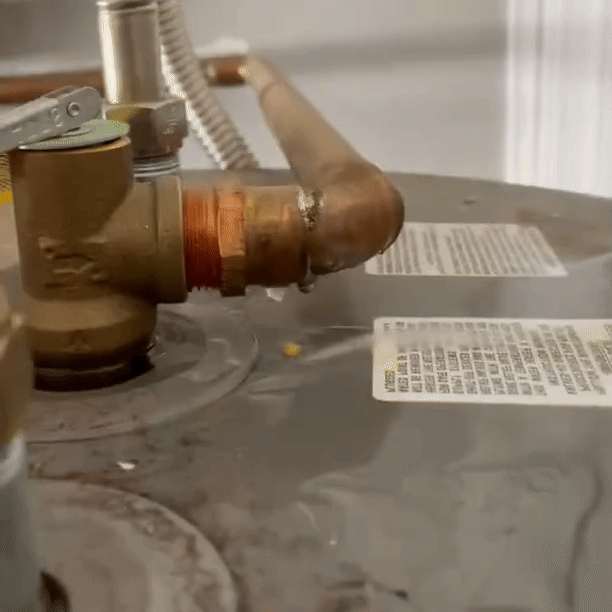
Anytime we get called out for an issue on a water heater that's over 8 years old, we start talking about the benefits of replacement versus repair. Once it gets to the edge of its lifespan, do you want to really put $300 - $500 into repair maintenance, or do you just want to put in a new water heater?
A lot of times, there's some safety issues that are required by code now, that weren't in place 6 or 8 years ago. For example, now, any water heater that's put in on a 2nd floor that feeds any fixture below or in the attic requires an anti-siphon device.
Say the city cuts off the water, to a waterline repair and you have no water pressure in your house. Someone walks over to turn on the sink, turns on the faucet. Well, there's no water, except for the little bit of hot water that starts trickling out of your water heater. Without an anti-siphon device, that water heater can drain that water, soon as it gets below the sensor. Then the water heater can fire up, creating a fire hazard because it's got no water in it. The water heater senses that it's empty, or it just thinks it's cold. This causes a major hazard.
You know, a lot of common issues with gas water heaters or gas control valves. You basically have a couple of issues on a gas lot. Also talk about electric the components that typically go out on a gas water heater or your gas control valve or your pilot tube assembly. That's basically the only two parts.
Electric water heaters only have a couple of parts. There's a heating element, and a thermostat. So if you've got an electric water heater, it's going to be the heating elements, or the thermostats.
Some exciting water heater technology that has come a long way, is hybrids. Hybrid water heaters are great. They're super efficient. They basically just pull all the hot ambient air back in your garage or your attic. It's basically heating your water out of the air.

.jpg)
.jpg)
.jpg)